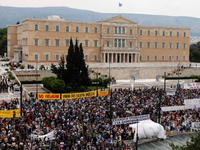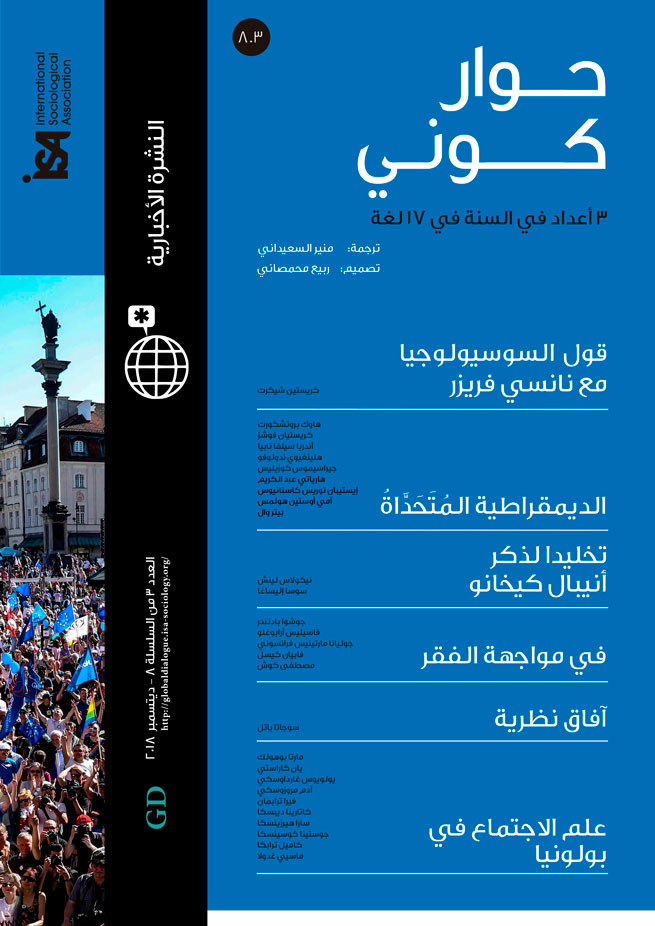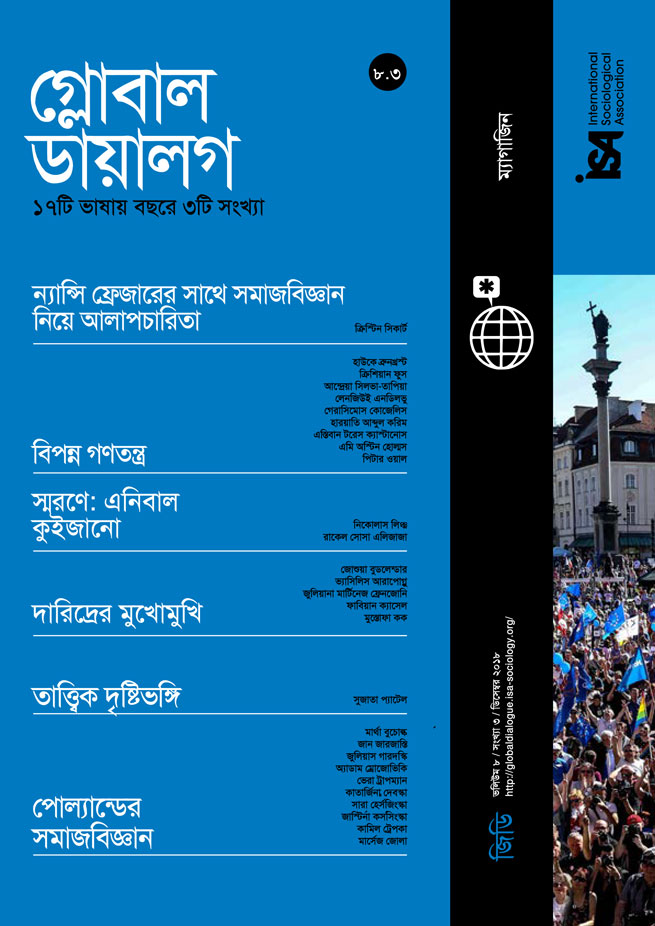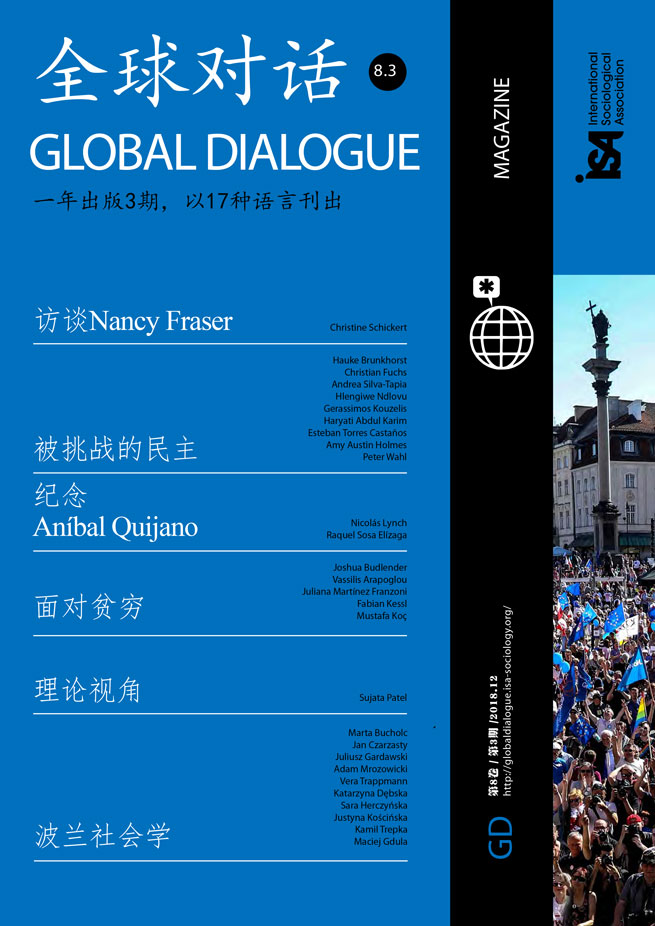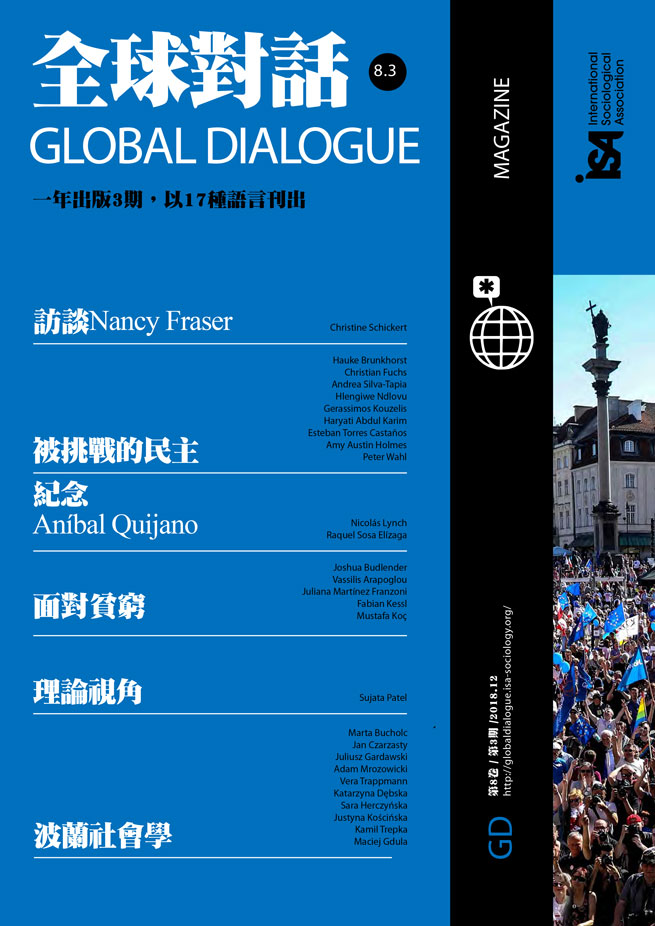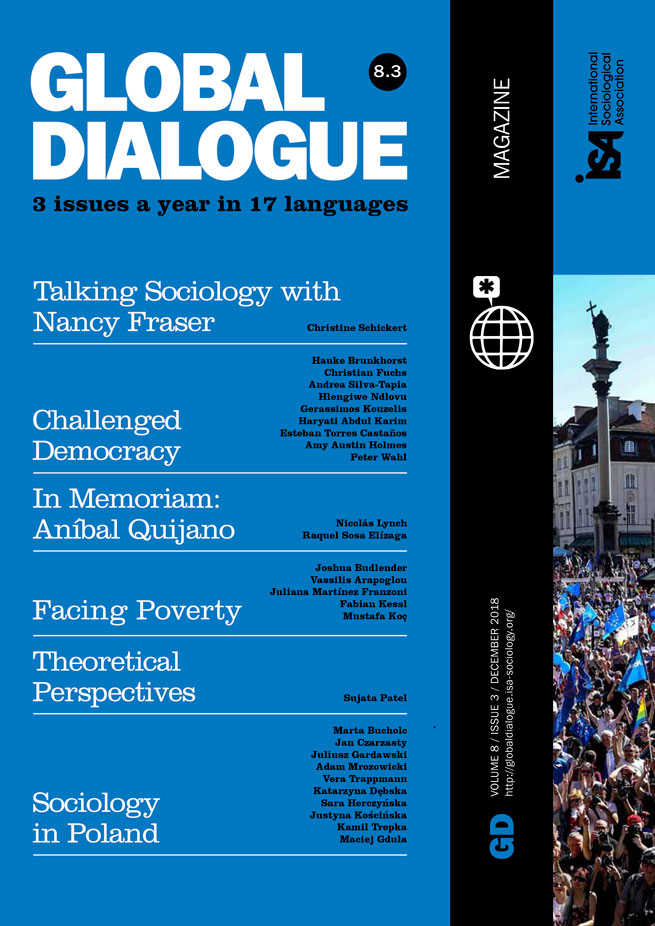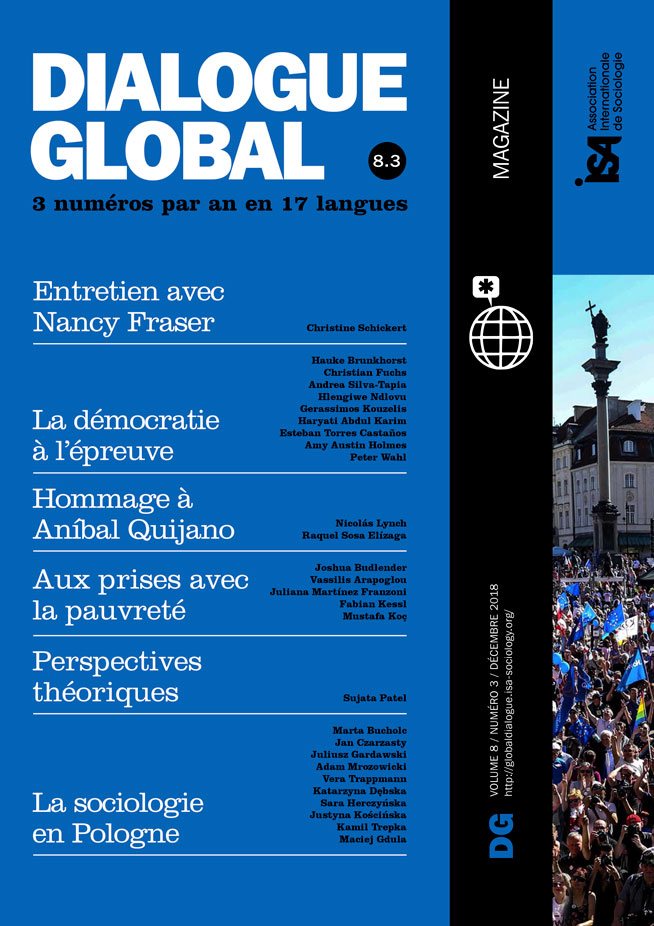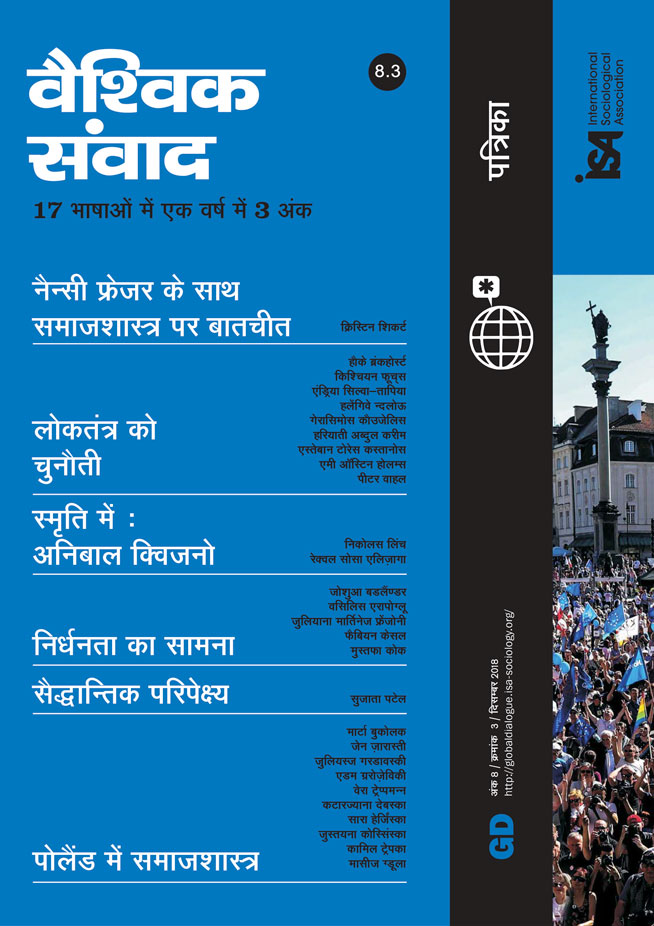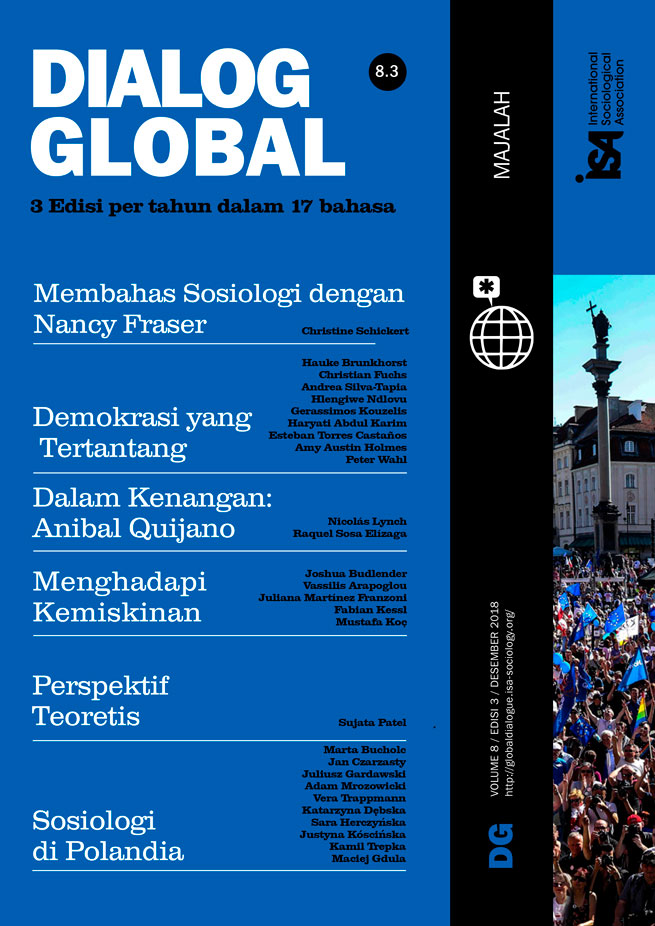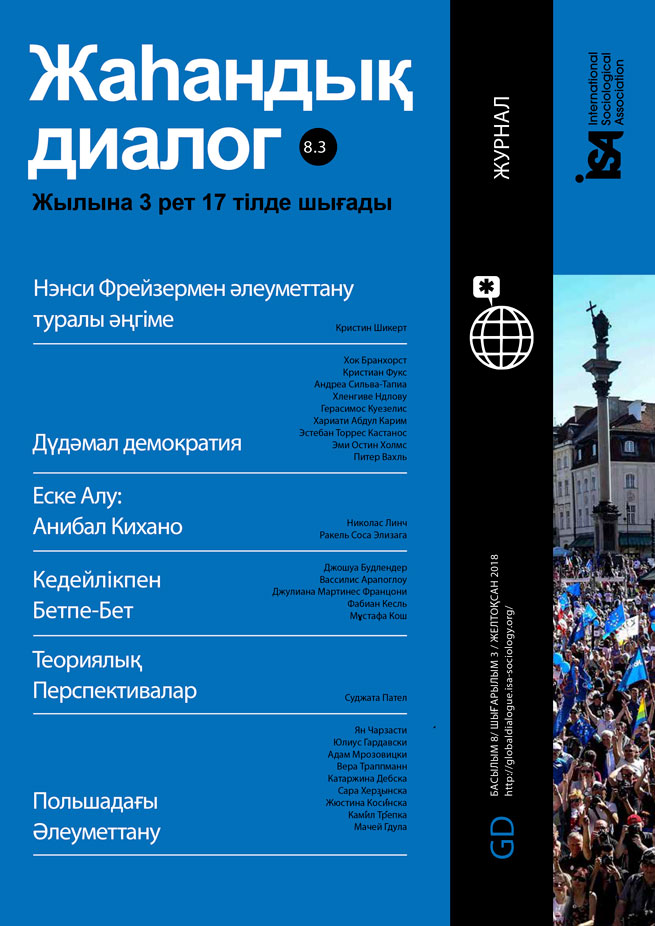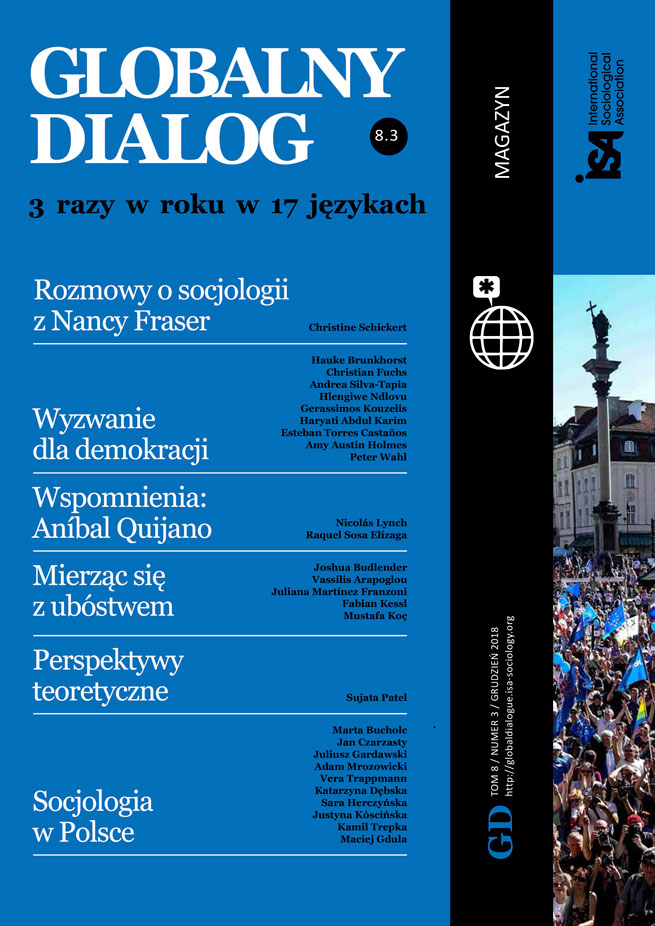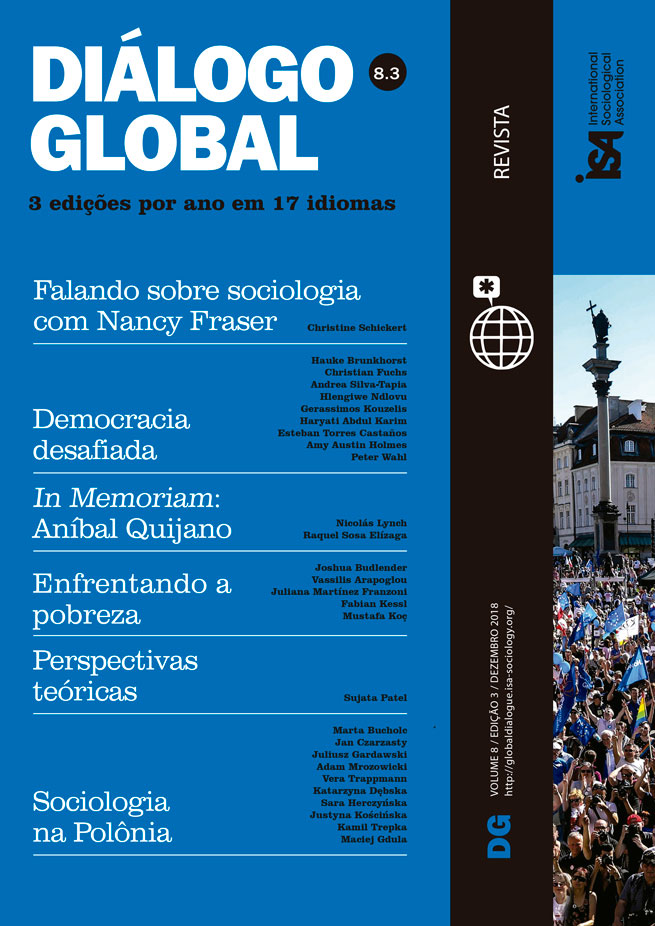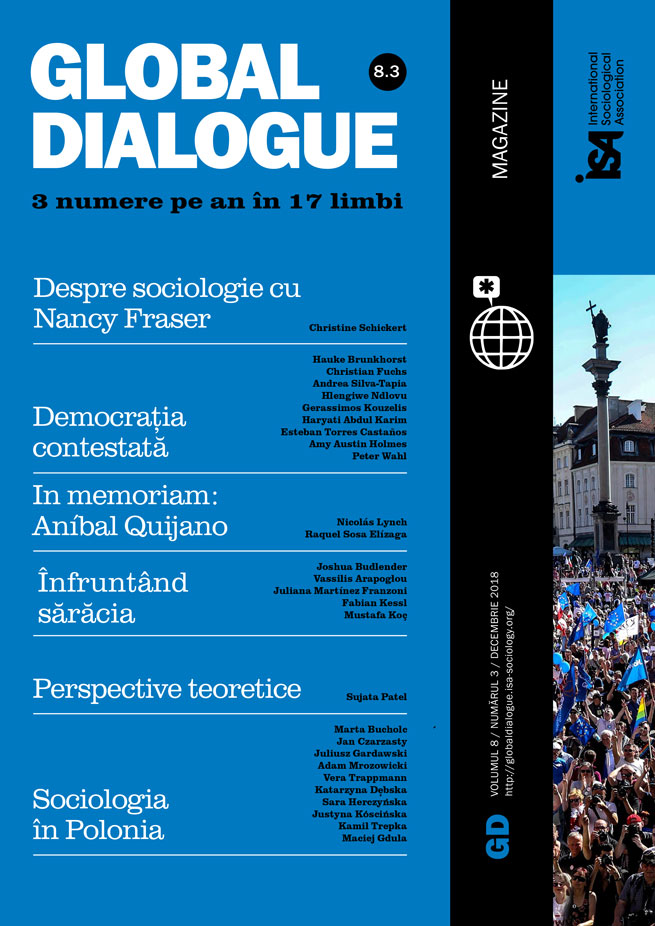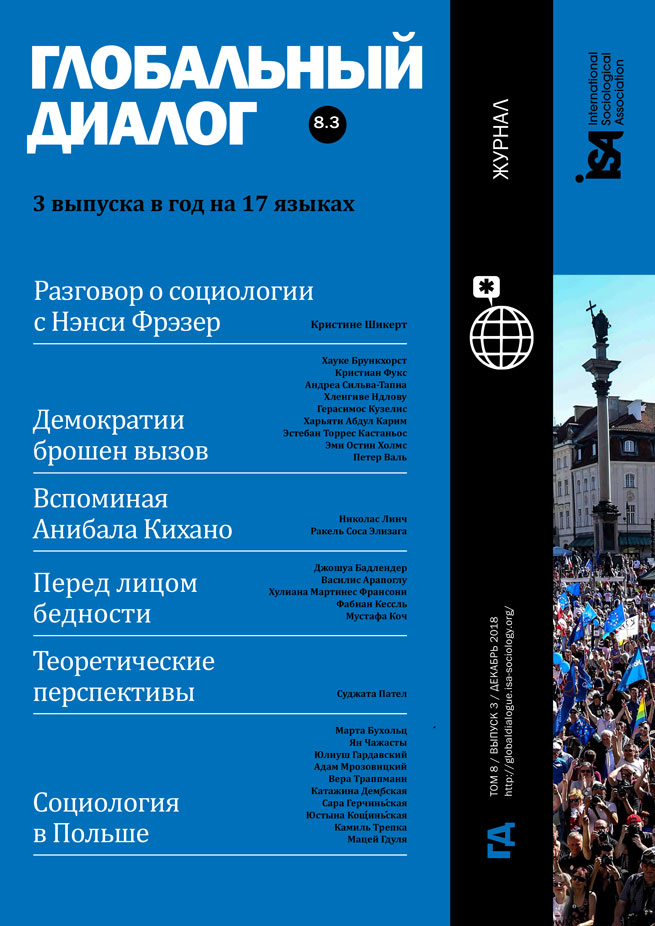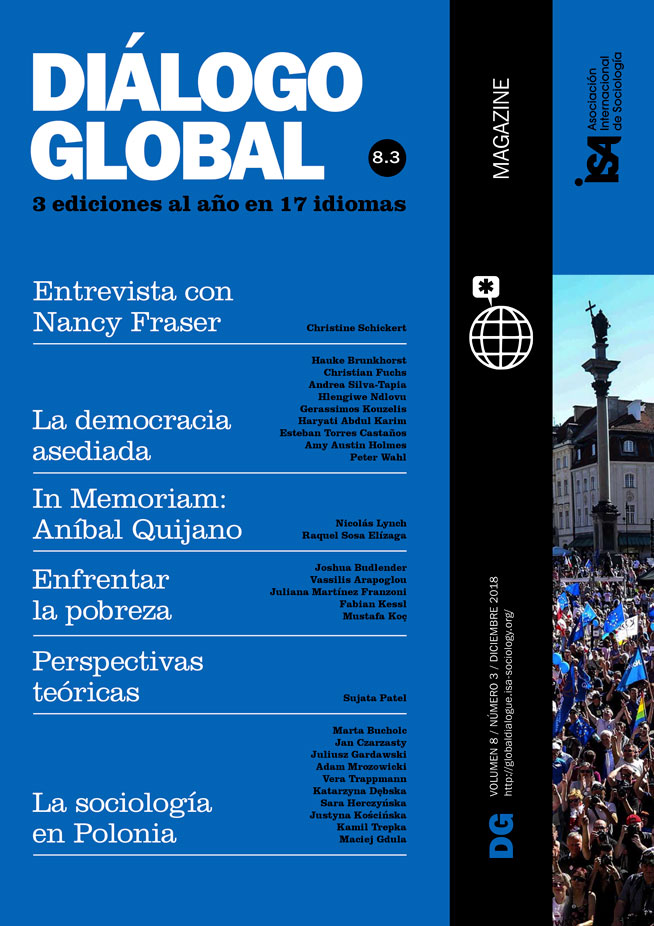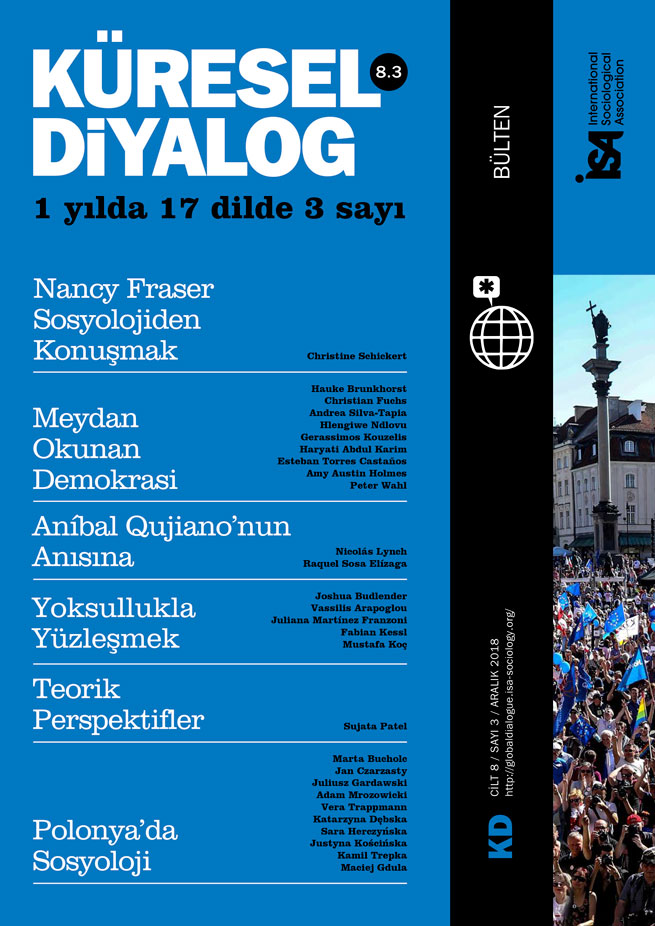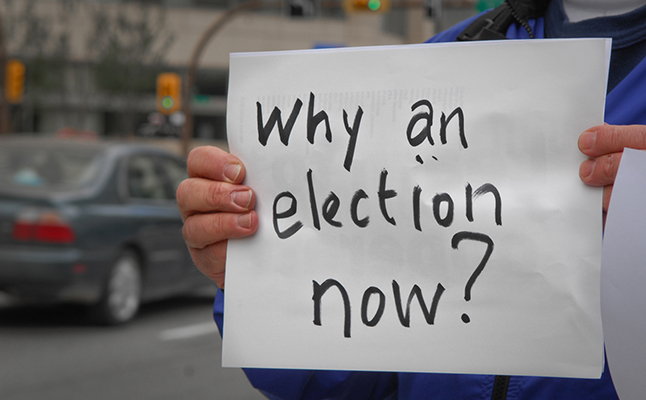After a century of fierce, bloody, and brutal class struggles, global civil wars, and world revolutions, the capitalist state became the cosmopolitan-constituted (e.g. Articles 23 to 26, German Basic Law), democratic and social state (Articles 20 and 28, German Basic Law). In the Global North, justice became an “existing concept” (Hegel).
Relations of production were partially socialized, with property split up into countless distinct forms spanning private and public. The capitalist and the worker spent their vacation at the same seaside resort, the former with a sea view, the latter with a street view. But they had to swim in the same water, play on the same beaches, and send their kids – and this is the crux of the matter – to the same public school. The worker drove a small car, the boss a large one, but each of them ended up in the same traffic jam, as there were no skyscrapers with helipads for the rich yet – nor high-rises without adequate fire protection for the poor.
Yet the Global North’s prosperity came at the high cost of the South’s devastation. The nationally confined welfare state was white, male, and heterosexual. No existing justice without an “existing contradiction” (Hegel). Democracy ended – and it did so everywhere – at the color line and the gender line. Since the 1960s, new social movements have protested against this time and again, becoming increasingly successful in gaining human rights, civil rights for people of color, women’s emancipation, disabled rights, sexual self-determination, environmental protection, and a cosmopolitan culture. When students and workers joined forces in Paris in May 1968, the dream of a unification of the artistic critique and social critique of modern capitalism (Boltanski) seemed to come true at last. It became realistic to demand the impossible. What followed, however, was economic recession – which brought the political right into office.
From state-embedded markets to market-embedded states
The bloody military coups in Chile (1973) and Argentina (1976), generously supported by the West, were the experimentum crucis, while the neoconservative electoral victories in Great Britain (1979) and the United States (1981) paved the way, and the self-destruction of bureaucratic socialism (1989) finally removed the last obstacle to neoliberal globalization. Over the course of just a few years, state-embedded markets became market-embedded states. The primacy of public law was substituted by a vast (and growing) number of transnational regimes subject to private law which, as was the case with the erstwhile Roman Civil Law, exclusively serves the purpose of coordinating the interests of the ruling classes across the empire. Legal formalism, which emancipates us all from informal rule, was complemented by a highly dynamic informal law, revealing the contours of a new “Dual State” (Fraenkel) of formal statutory law and informal dispositive law.
One paradigmatic example of this was the Eurogroup. Following his exclusion from this body at the height of the crisis in 2015, the Greek finance minister inquired as to the legal justification for this decision. The chairman of the Eurogroup called on his lawyers to explain that the group had no procedural norms, as it was essentially non-existent in legal terms, and that its members could do almost whatever they wanted other than commit murder.
The state’s economic power to intervene is impeded by enforced market conformity, while its organizational power and police force remain intact so as to effectively fulfill their role as a “maintenance squad in a factory,” ensuring the continuation of the “overall market order” and yet firmly “embedded” in its power (Hayek). Being embedded in the world market ensures that investors can freely select their country of choice, while states in turn cannot choose their investors and are thus forced into a merciless race to the bottom for attractive production conditions. As a result, the social differences between classes, nations, nationalities, and generations are propelled to dizzying heights.
Football is in many ways a reflection of global society. If professional players in the English Premier League earned just about twice as much as the ordinary fan in 1985, they now make 200 times as much. Along with the rise of players’ incomes came an increase in ticket prices. Long-standing football fans, unable to follow suit, resigned, and stayed away, and the stands were filled by those who made more money. The same picture is found outside the stadiums: the run-down neighborhood, no longer able to afford admission to the new society, drowning in political apathy, alcohol, and drug-related prostitution. Election turnout is under 30%, while rising to over 90% in the wealthy parts of town, feeding the latter’s illusion of marching at the forefront of progress. And even if progress again turns out to be a lot smaller than it initially appeared, one is at least still left with a voluminous wallet. Naturally, the parties on the left, who continuously lose voters, move further to the right at each election – as one would expect in a market economy grounded in the infinite rivalry of evolution.
Social inequality creates political inequality
The major feminist and multicultural achievements, which destroyed decades-old relations of domination, are losing their “fair value” (Rawls). The unemployed, Jewish, lesbian, and previously convicted black woman can no longer leave the “blood ties” (Marx) of her native ghetto behind – where she is vulnerable to all conceivable anti-Semitic, homophobic, and misogynist prejudices to the same extent as she is confronted with the sexism and violence of police and gangs of men.
If electoral campaigns offer only technical alternatives characterized by distinct micro-economic strategies of adjustment to the world market rather than political alternatives to neoliberal market economy, democracy ceases to exist.
The “glittering misery” (Kant) of the shopping malls reveals its horrific un-glittering face in the Libyan Desert, at sea, and in the camps along our southern borders. At the former Moria refugee camp on the Greek island of Lesbos, now converted into a deportation center, the European Union is sacrificing that which it once purported to stand for. The “area of freedom, security and justice” (Article 4, Treaty on the Functioning of the European Union, henceforth TFEU) “with respect for fundamental rights” (Article 67, TFEU), guaranteeing the international “right to asylum” (Article 18, Charter of Fundamental Rights of the EU) and “compliance with the principle of non-refoulement” (Article 78, TFEU), in which “racism and xenophobia” are prevented and combatted (Article 67, TFEU), is translated into concrete law through three different boundaries at the appallingly unsanitary, medically undersupplied, and utterly overcrowded Moria camp on Lesbos: The first, brick-wall boundary encompasses the detention camp, housing rejected asylum seekers and newly arrived people illegally approved for deportation. The second boundary, made of barbed wire, lookout towers, and armed guards, surrounds the refugee housing compound with the detention camp at its center. The third is the sea, and the island no one is allowed to leave. By virtue of the sea, which protects the very nature of our markets, the border becomes an element of natural law. Whoever arrives is detained, as if flight were a crime. As Carolin Wiedemann puts it: “Places like Moria are planned all over the EU. They are supposed to be called ‘Controlled Centers’ [in German: ‚Kontrollierte Zentren‘] One would prefer not to guess what the [German] abbreviation for this title could be.”
Hauke Brunkhorst, University of Flensburg, Germany <brunkhorst@uni-fl ensburg.de>




